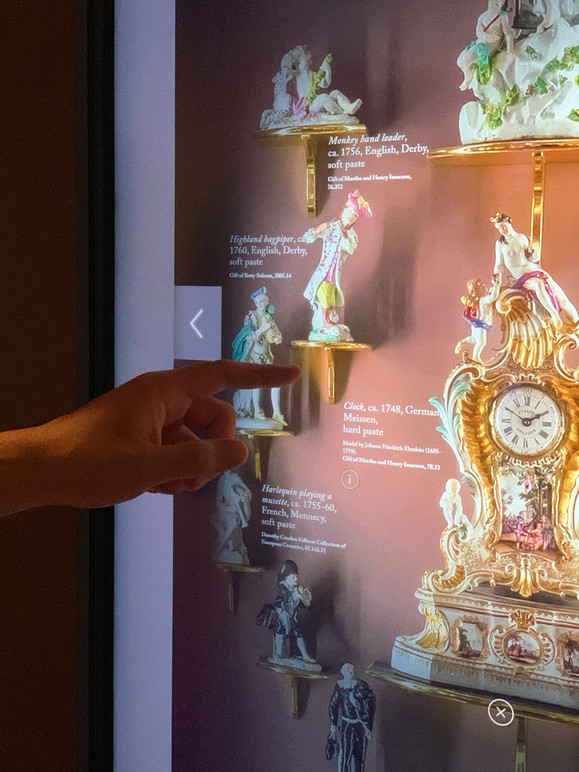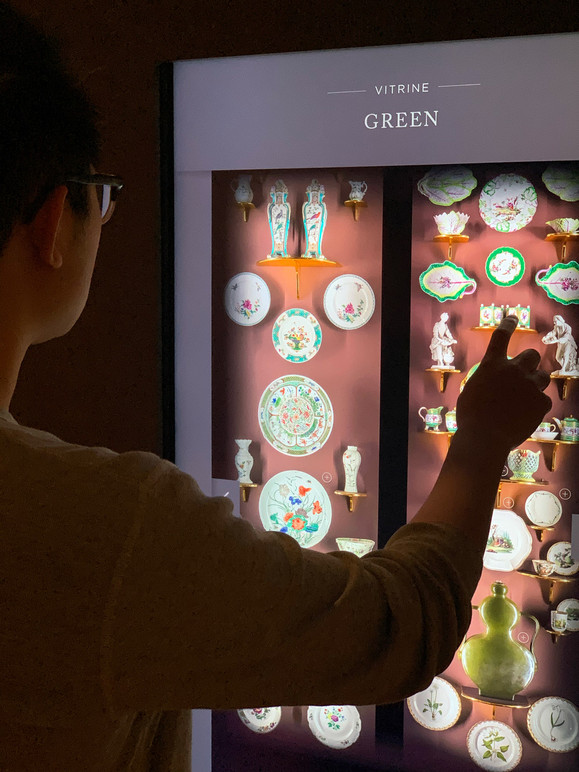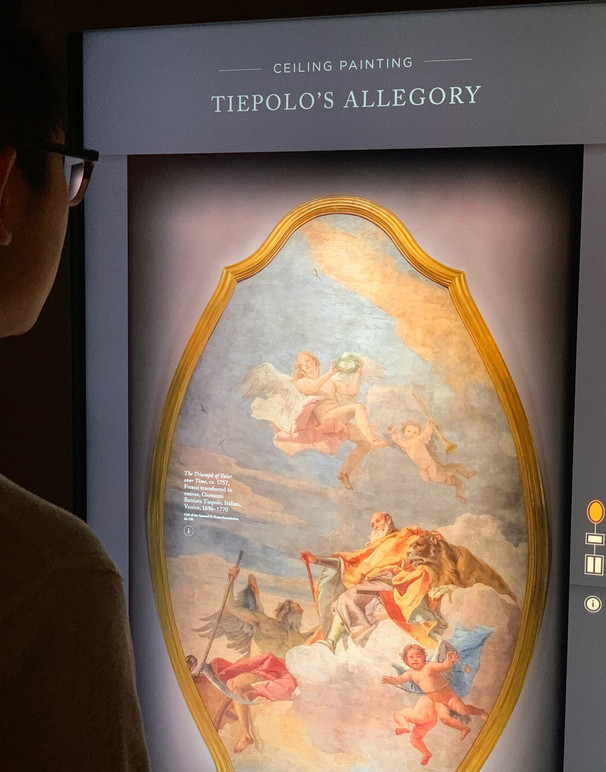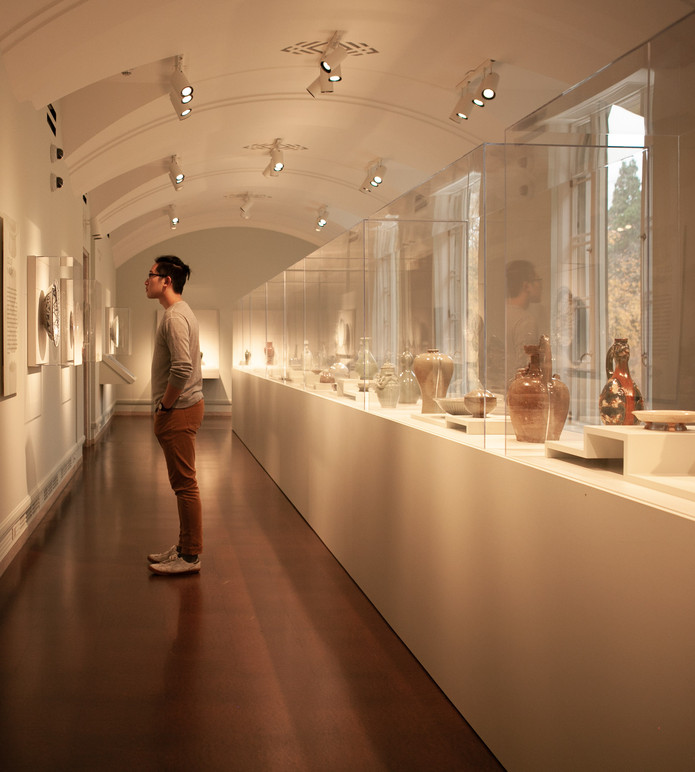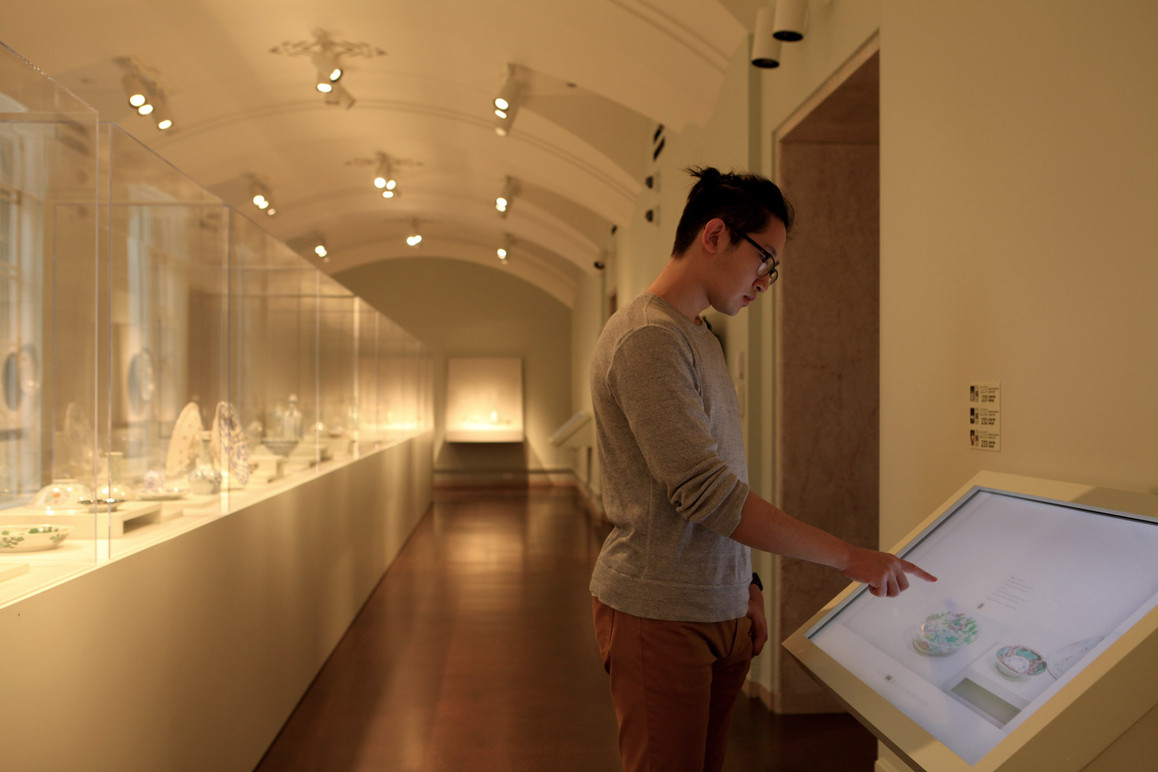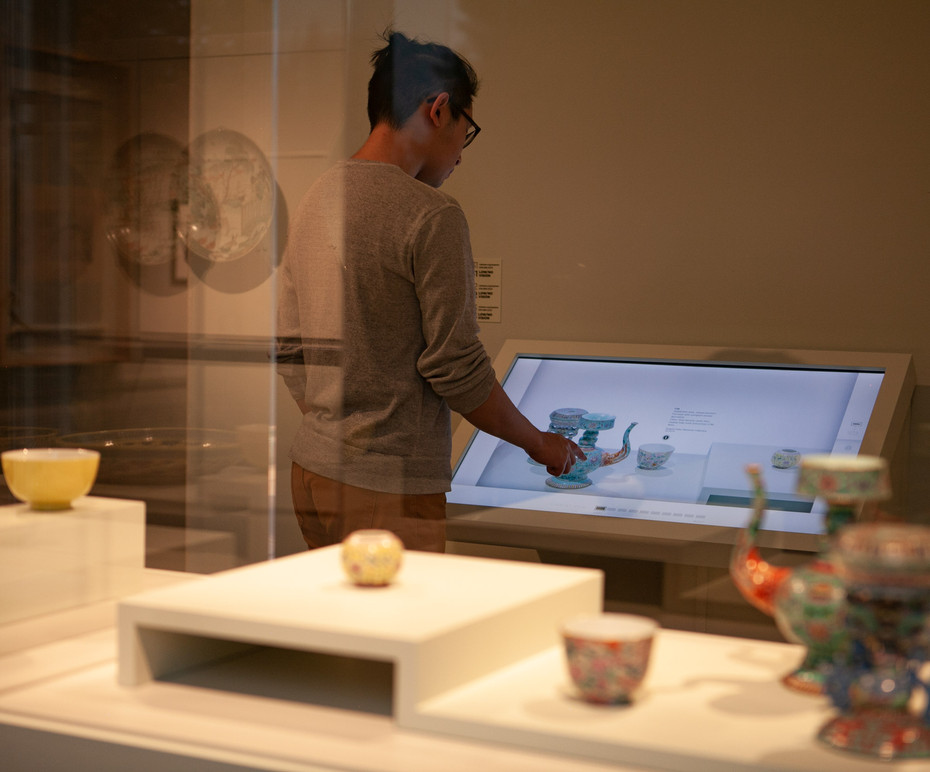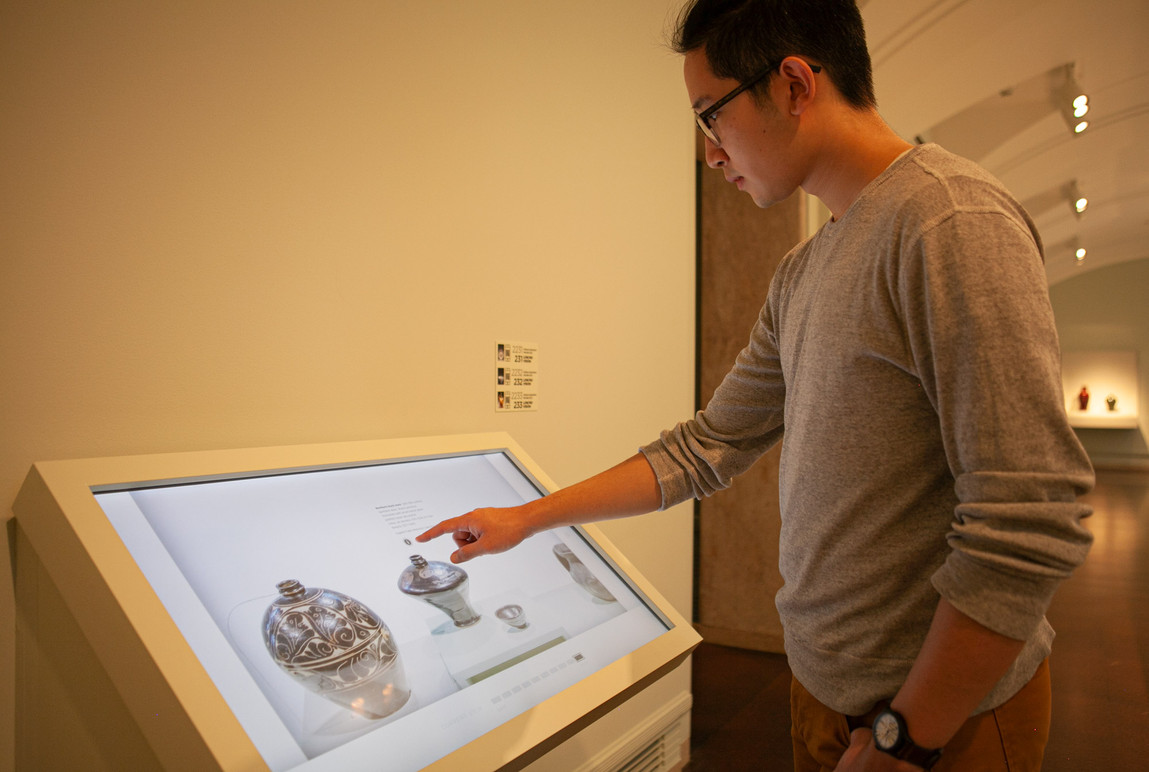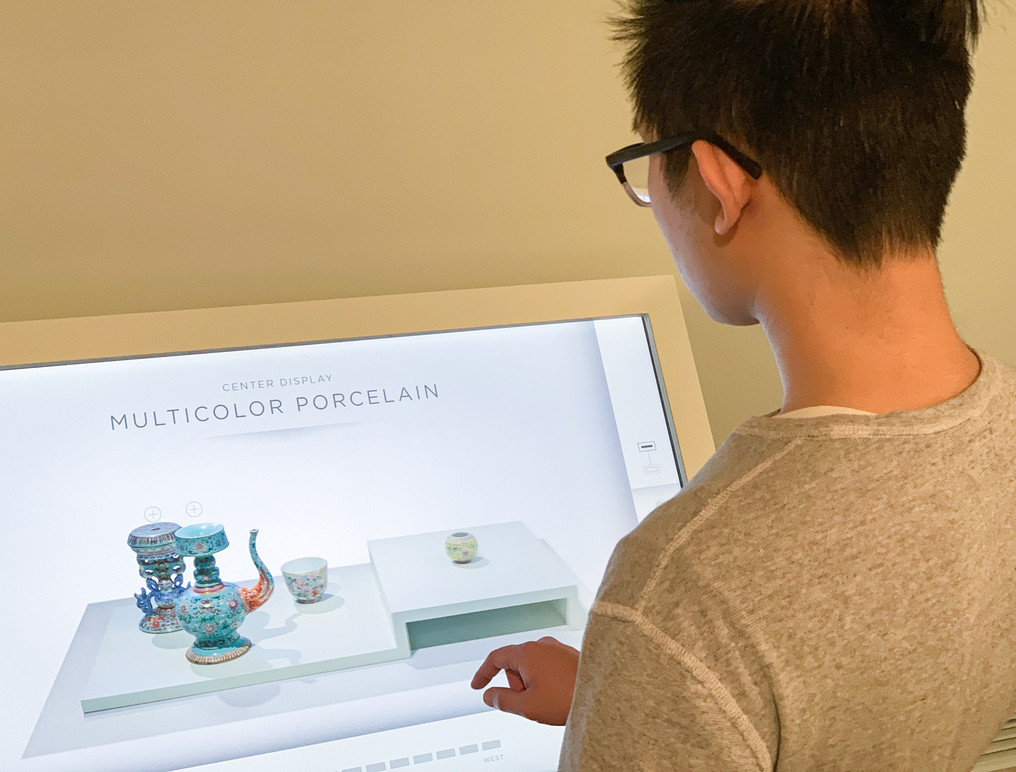Interpretive Software System
Digital ID System: SAM’s Porcelain Room and SAAM’s Ceramic Room
Client:
Seattle Art Museum, Seattle Asian Art Museum
Venue/Location:
SAM (Downtown Seattle), SAAM (Volunteer Park, Seattle)
Browse:
exhibits and interactives
Client:
Seattle Art Museum, Seattle Asian Art Museum
Browse:
exhibits and interactives
By prioritizing flexibility, Belle & Wissell crafted a single elegant interface for two distinct locations. This digital artifact ID system was designed, engineered, then tailored to both the Seattle Art Museum (SAM) and the newly expanded Seattle Asian Art Museum (SAAM). The two touch experiences provide a single intuitive solution for the discovery and interpretation of both complex object displays. Belle & Wissell also created a touch-less content delivery mode for use during the global pandemic.
SAM’s Porcelain Room showcases over one thousand objects in a floor-to-ceiling array, evoking the specially-designed rooms once built for these treasured collections. The display transports viewers to an earlier time—like those of yesteryear, the Porcelain Room collection is arranged by color and theme, and does not include labels. Until recently, visitors explored the collection through a large printed catalogue that identified and explained each item. Given the complex displays inside the vitrines, effective and intuitive interpretation proved challenging.
A similar, visually stunning collection of ceramics accompanied the SAAM’s grand reopening. As in the Porcelain Room, museum curators omitted labels, inviting the viewers to focus their gaze only on the ceramics.
While the desired interpretative functionality for SAAM’s Ceramic Room was identical to SAM’s Porcelain Room, the layout of artifacts in cases, case placement and orientation within the space, and general ergonomics were vastly different.
Belle & Wissell created a digital label system to serve both collections—a single piece of software using a streamlined content management scheme. The resulting digital experience easily adapts between the two instances, elegantly integrating to enhance visitors’ appreciation of these important works of art.
Project Accolades:
The New York Times “Seattle Asian Art Museum to Reopen After $56 Million Renovation,” 2020
Wallpaper* “Seattle’s art deco Asian Art Museum gains a modern extension,” 2020
Belle & Wissell Team Credits
Principal: Gabe Kean
Studio Producer: Sarah Trueblood
Design Director: Claudia de Almeida
Technology Lead: Edward Tang
Art Director: Edrea Lita
Designer: Izzi Vasquez
Developer: Scott Thiessen
Developer: Alex Banh
Additional Project Credits
Chief Technology Officer, Seattle Art Museum: Manish Engineer
Associate Director of Audio Visual Services, Seattle Art Museum: Kevin Higinbotham
Assistant Project Manager, IT, Seattle Art Museum: Selena Castricone
Belle & Wissell Team Credits
Principal: Gabe Kean
Studio Producer: Sarah Trueblood
Design Director: Claudia de Almeida
Technology Lead: Edward Tang
Art Director: Edrea Lita
Designer: Izzi Vasquez
Developer: Scott Thiessen
Developer: Alex Banh
Additional Project Credits
Chief Technology Officer, Seattle Art Museum: Manish Engineer
Associate Director of Audio Visual Services, Seattle Art Museum: Kevin Higinbotham
Assistant Project Manager, IT, Seattle Art Museum: Selena Castricone
By prioritizing flexibility, Belle & Wissell crafted a single elegant interface for two distinct locations. This digital artifact ID system was designed, engineered, then tailored to both the Seattle Art Museum (SAM) and the newly expanded Seattle Asian Art Museum (SAAM). The two touch experiences provide a single intuitive solution for the discovery and interpretation of both complex object displays. Belle & Wissell also created a touch-less content delivery mode for use during the global pandemic.
SAM’s Porcelain Room showcases over one thousand objects in a floor-to-ceiling array, evoking the specially-designed rooms once built for these treasured collections. The display transports viewers to an earlier time—like those of yesteryear, the Porcelain Room collection is arranged by color and theme, and does not include labels. Until recently, visitors explored the collection through a large printed catalogue that identified and explained each item. Given the complex displays inside the vitrines, effective and intuitive interpretation proved challenging.
A similar, visually stunning collection of ceramics accompanied the SAAM’s grand reopening. As in the Porcelain Room, museum curators omitted labels, inviting the viewers to focus their gaze only on the ceramics.
While the desired interpretative functionality for SAAM’s Ceramic Room was identical to SAM’s Porcelain Room, the layout of artifacts in cases, case placement and orientation within the space, and general ergonomics were vastly different.
Belle & Wissell created a digital label system to serve both collections—a single piece of software using a streamlined content management scheme. The resulting digital experience easily adapts between the two instances, elegantly integrating to enhance visitors’ appreciation of these important works of art.
Project Accolades:
The New York Times “Seattle Asian Art Museum to Reopen After $56 Million Renovation,” 2020
Wallpaper* “Seattle’s art deco Asian Art Museum gains a modern extension,” 2020

